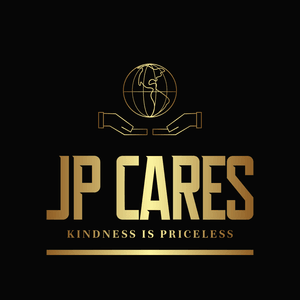Benefits of a Youth Mentorship Program:
1. Positive Role Modeling: Provides young people with a trusted adult to look up to, offering guidance and support during critical life stages.
2. Improved Academic Performance: Encourages better grades, improved study habits, and increased engagement in school.
3. Enhanced Social Skills: Helps youth develop effective communication, teamwork, and conflict resolution skills.
4. Increased Self-Esteem and Confidence: Boosts a young person’s confidence through encouragement and recognition of their strengths and achievements.
5. Guidance in Goal Setting and Decision Making: Helps mentees identify and pursue their personal, academic, and career goals.
6. Access to Resources and Opportunities: Connects youth to educational resources, career development tools, and extracurricular opportunities.
7. Reduced Risk of Negative Behaviors: Provides a protective factor against risky behaviors such as substance abuse and delinquency.
8. Improved Emotional Well-Being: Offers emotional support during challenges, reducing feelings of isolation and anxiety.
9. Career Development: Prepares mentees for the workforce through resume building, job application assistance, and career decision guidance.
10. Fosters Long-Term Connections: Builds lasting relationships that extend beyond the program, creating a support network for mentees. Youth mentorship programs are instrumental in empowering young individuals to achieve their potential, equipping them with tools for a brighter future.
Key Components of a Youth Mentorship Program:
1. One-on-One Mentoring: Individualized support where a trained mentor works directly with a mentee to address their unique needs, goals, and challenges.
2. Group Mentoring Sessions: Interactive sessions where mentees can engage with peers, share experiences, and learn collectively.
3. Skill-Building Activities: Workshops and activities focused on life skills such as communication, problem-solving, time management, and leadership.
4. Academic Support: Tutoring, homework assistance, and educational planning to help mentees achieve academic success.
5. Career Guidance: Resume building, career exploration, interview preparation, and networking opportunities to prepare mentees for the workforce.
6. Personal Development: Activities designed to build self-esteem, confidence, and emotional resilience.
7. Goal Setting and Action Planning: Helping mentees set achievable personal, educational, and career goals and develop a clear plan to reach them.
8. Community Service Projects: Opportunities for mentees to give back to their communities, fostering a sense of responsibility and connection.
9. Parental/Guardian Involvement: Engaging family members to ensure holistic support and alignment in the mentee’s development.
10. Regular Check-Ins and Evaluations: Ongoing assessments to monitor progress, provide feedback, and adjust the program as needed.
11. Recreational Activities: Fun and engaging activities, such as sports, arts, or team-building exercises, to promote a balanced lifestyle.
12. Resources and Referrals: Connecting mentees with community resources, scholarships, internships, and other opportunities.
13. Celebrations and Milestones: Recognizing and celebrating achievements, big or small, to motivate and encourage continued growth. These components create a comprehensive and structured approach, ensuring that mentees receive the guidance, skills, and support they need to thrive.
Target Population and Age Range for a Youth Mentorship Program:
Target Population:
• At-Risk Youth: Young individuals facing challenges such as poverty, unstable family environments, involvement in the foster care system, or exposure to trauma.
• Youth in Underserved Communities: Those with limited access to educational, extracurricular, or career development opportunities.
• Youth Impacted by Social Issues: Including those affected by bullying, discrimination, substance abuse, or mental health challenges.
• First-Generation Students: Youth who are the first in their families to pursue higher education and need additional support and guidance.
• Youth with Behavioral or Academic Struggles: Students who may be underperforming in school or showing signs of disengagement.
Age Range:
Typically between 10 and 18 years old, covering:
• Pre-Teens (10-12): Focus on building self-esteem, emotional resilience, and foundational skills.
• Teenagers (13-15): Emphasis on academic support, social skills, and exploring interests and goals.
• Older Teens (16-18): Guidance on career planning, higher education, and preparing for adulthood.
By tailoring programs to this population and age range, mentorship initiatives can provide targeted, impactful support that meets the unique needs of each age group.

